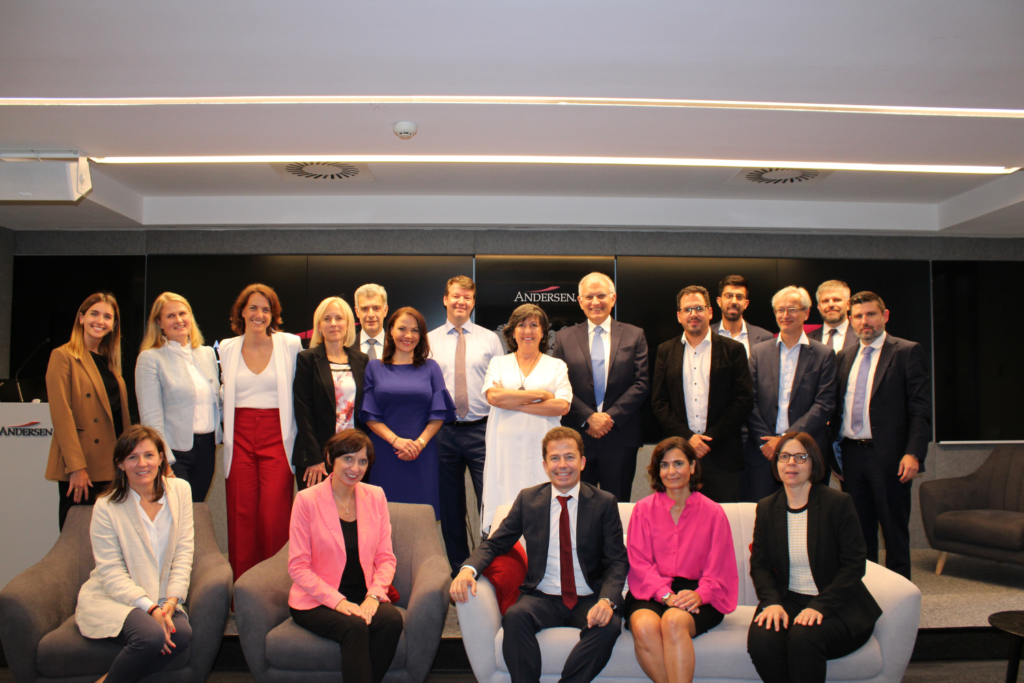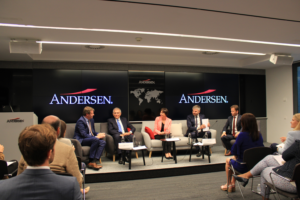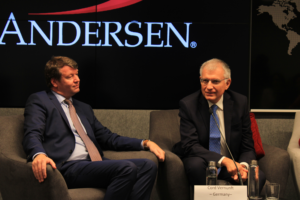The impact of the economic challenges and inflation on employment relations in Europe
Andersen´s Employment group in Europe has organized a hybrid event covering different strategies to face the current economic challenges with minimum impact for multinational companies.

The world is facing major challenges. First, the pandemic paralyzed large parts of the economy, which many states and employers in Europe coped with at great cost and effort. Just as the states were reducing the pandemic-related restrictions, the economy was returning to its growth path and the unemployment rate in many states was approaching pre-crisis levels, the war in Ukraine began. In addition to the continuing disruption of supply chains, energy prices are rising rapidly. Companies in Europe are currently facing very significant price increases, which they cannot pass on to their customers and must reduce their costs.
For this reason, Andersen´s Employment group in Europe has organized a hybrid event entitled ‘Facing Global Economic Challenges and Inflation. Impact on Employment Relations in Europe’, which has covered different strategies to face the current economic challenges with minimum impact for multinational companies.
The event, which took place at Andersen’s offices in Madrid, was attended by Iñigo Rodríguez-Sastre, Co-Managing Partner at Andersen Iberia; Uberto Percivalle, Partner at Andersen (Milan); Germán Martínez, Partner at Andersen (Madrid); Magdalena Patryas, Partner at Andersen (Katowice) and Cord Vernunft, Partner at Andersen (Berlin).
Iñigo Rodríguez-Sastre, Co-Managing Partner of Andersen Iberia, has inaugurated the workshop by thanking the European Employment Service Line for their involvement in the organization of the event, especially Cord Vernunft as Head of Practice in Europe, and Victoria Caldevilla as Head of Practice of Andersen Iberia and host of the event. The Co-Managing Partner of Andersen has emphasized that this event aims to respond to “the difficult context in which companies find themselves as a result of inflation and the war in Ukraine, being forced on the one hand to reduce labor costs and on the other to increase wages due to rising prices.
Uberto Percivalle, Partner at Andersen in Milan, has opened the round of conferences introducing the concept of inflation, which is hitting the European labor market, causing companies’ costs to rise sharply, as well as their employees’ interest in obtaining better employment benefits (insurance policies, health plans, lunch vouchers, etc.) to combat rising prices.
Consequently, Germán Martínez, partner at Andersen in Madrid, explained some of the main alternatives that are being implemented in European companies to reduce costs, beyond the termination of employment, such as the temporary suspension of employment contracts or the reduction of working hours, the modification of working conditions and the irregular distribution of working hours.
Moreover, Magdalena Patryas, Partner at Andersen in Katowice, highlighted, during her presentation, the implementation of teleworking, which has become widespread in most countries in the wake of the COVID 19 pandemic, as another of the main measures to alleviate wage pressure, supported by an appropriate telework policy. Among the many benefits it offers, he highlighted flexibility, improved work-life balance for employees, and the creation of more positive working environments. He also pointed out that this measure can also be beneficial for companies, as it can lead to significant cost savings, for example by reducing office space, energy and maintenance costs.
Finally, Cord Vernunft, Partner at Andersen in Berlin, and Head of the European Employment group has developed the problem of the shortage of qualified workers, which causes human resources recruitment processes to take much longer, also impacting on companies’ costs. As possible solutions, Vernunft has pointed out a series of measures to be implemented by companies, such as retaining talent through incentives, investing in attractive employer branding, promoting work-life balance, and encouraging the promotion of women to higher positions.

